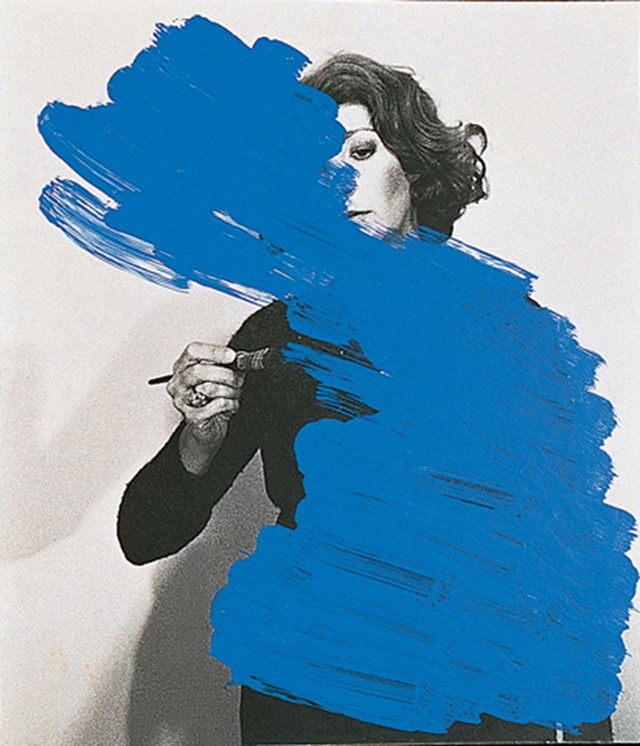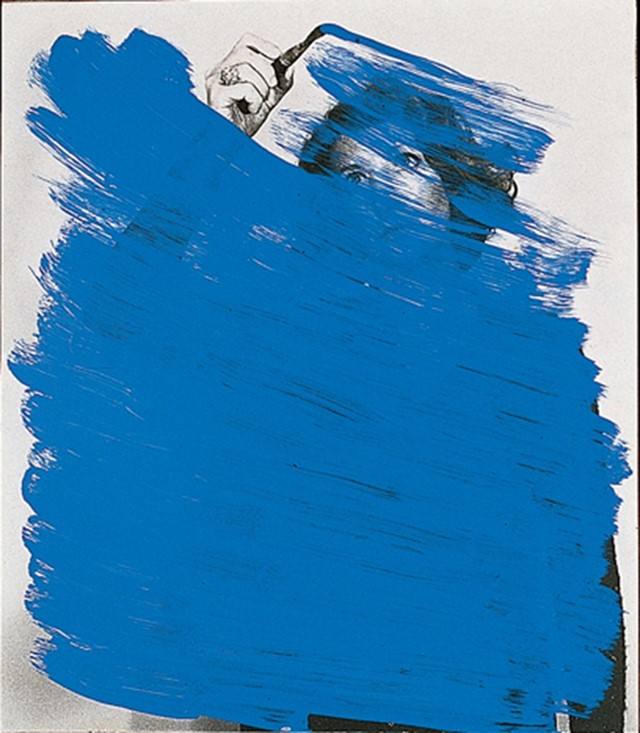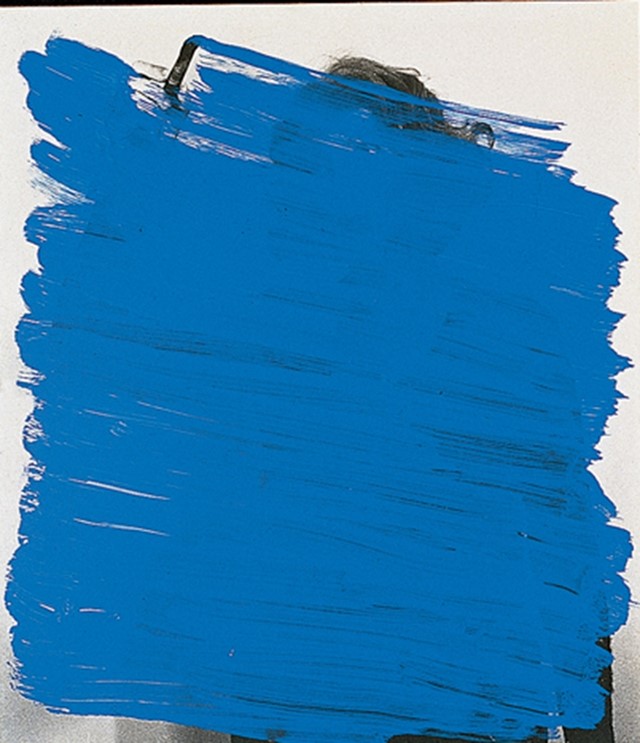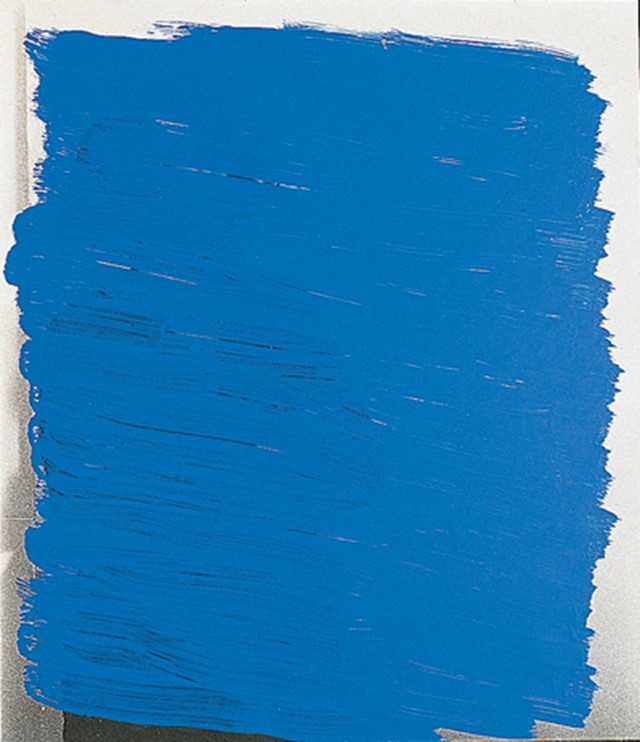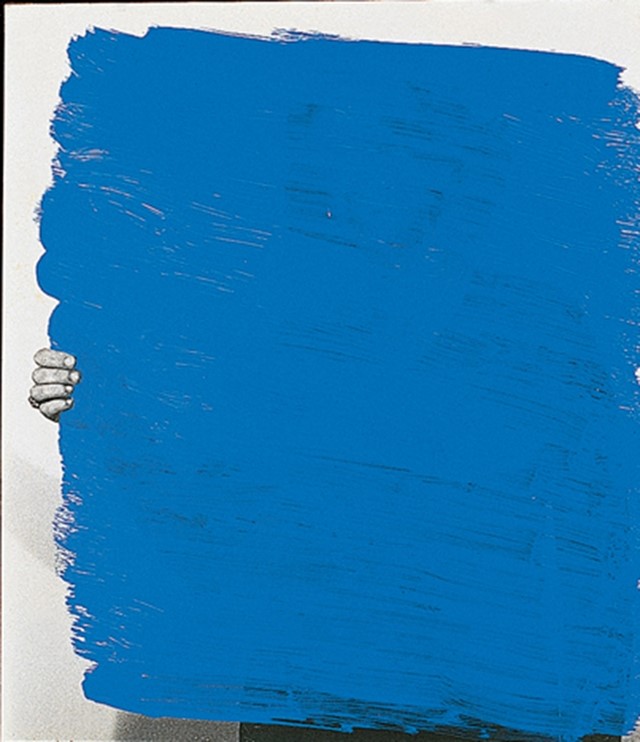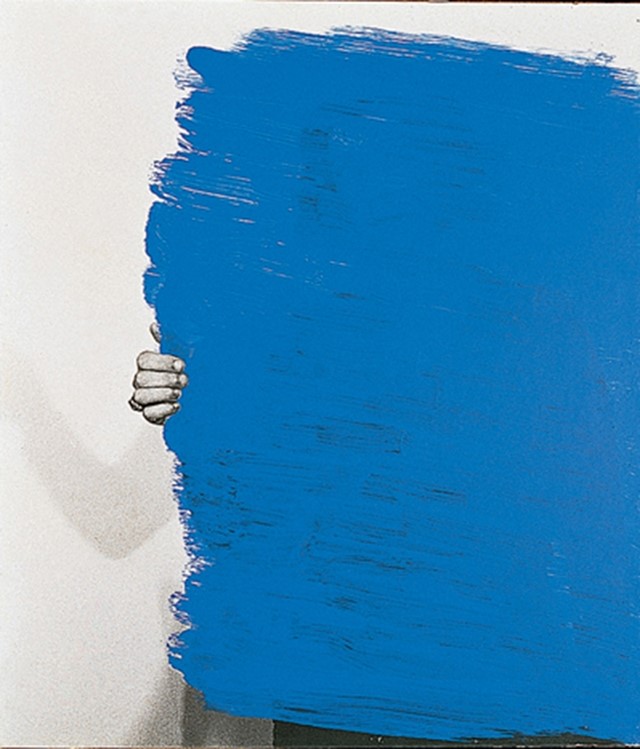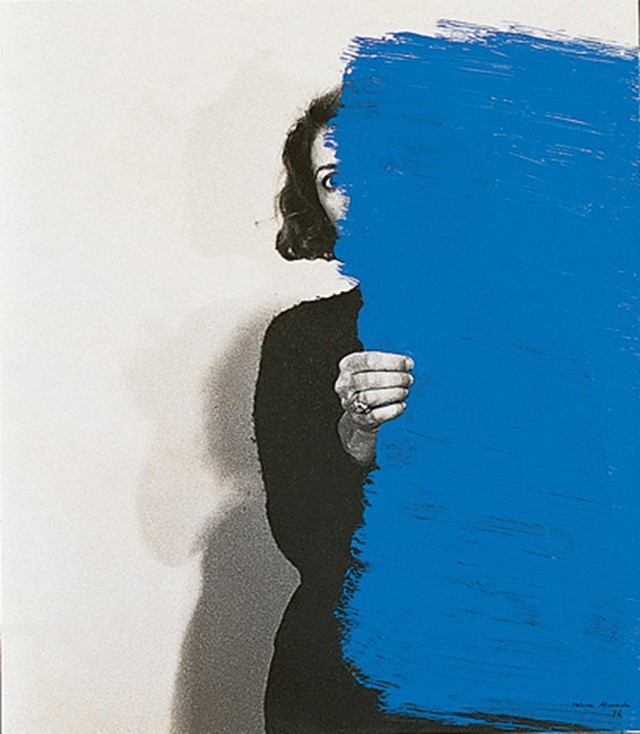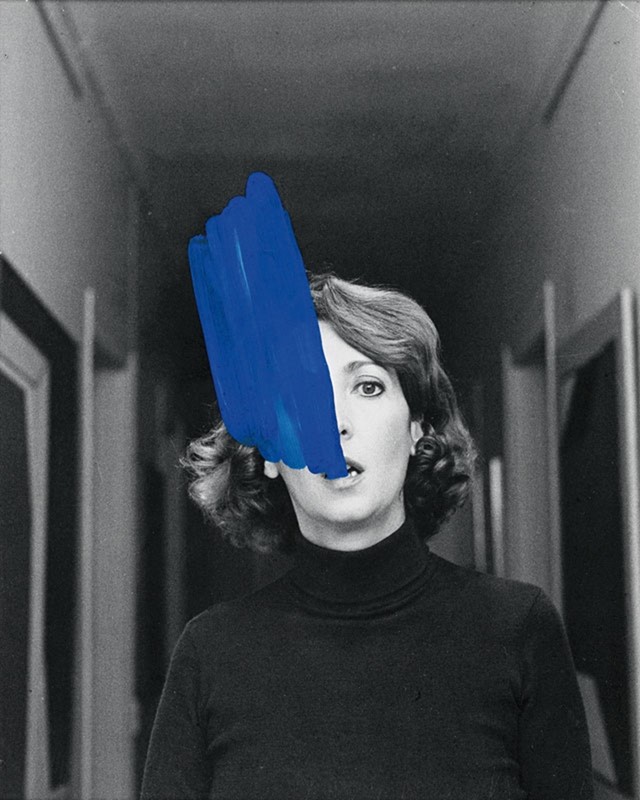A beautiful woman stares into the camera, a jagged splash of blue paint obliterating half her face. At first this act seems disfiguring, aggressive – is the artist blocking herself out of the picture in an act of self-loathing? In fact exploration of the full series of images, entitled Study for Inner Improvement, tells a totally different story.
Rather than a piece of self-obliteration, Helena Almeida’s photographs can be seen as a riposte to the stultifying, male dominated art world of the seventies. Indeed, the bright blue she uses is generally considered to be (despite Almeida's own denials) a sardonic rejoinder to Yves Klein’s Anthropometries, in which the artist painted nude female models in his virulent (and patented) shade of electric blue and used them as ‘living brushes’. While Klein negated the female form down to mute tools of his craft, going so far as dragging them across canvases thereby dictating their every move, Almeida's work reverses this subjugation, chewing up, swallowing the paint that is the instrument of Klein's dominance in an act of liberation for women and artists in general. This act of rebellion continues in the series below, where she blocks out the whole image with paint, before shoving the barrier away to peep out from behind it.
Almeida is arguably best known in her native Portugal, where she has exhibited innumerable times since her first solo show in 1967, and twice represented her country at the Venice Biennale in 1982 and 2005. Working continually for the past forty years, she is ever present in her works – literally placing her consistently black-clad figure in the frame – using photographs taken by her husband and collaborator, architect Artur Rosa, as backdrops for pieces that muse on the perception and perennial nature of performance. Constantly asking the question if a moment or experience can be preserved and experienced forever in a still, she persuades us that it can in works of radical simplicity and poetry, that are both playful and profound.
Find out more about Helena Almeida here.
